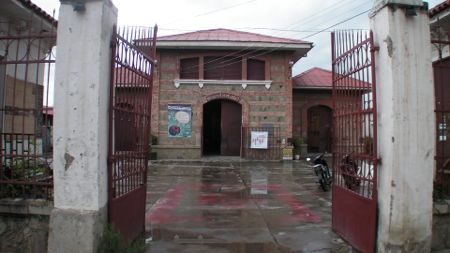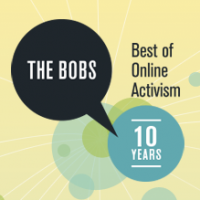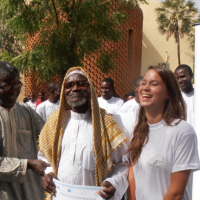Thirty-five participants from diverse backgrounds across Bolivia came together at the mARTadero project, an arts and cultural space in Cochabamba, Bolivia, as part of the “Conectándonos [es]” (Connecting) gathering held on December 12-14, 2011. Many of these participants hailed from the major cities of Santa Cruz, El Alto, and La Paz, but there was also representation from more rural towns such as Caranavi, Llallagua, Tarabuco, and San José de Chiquitos. Each participant arrived with a different set of expectations and each had unique experiences, but all had interest in exploring ways how the use of citizen media and the building of networks can play a role in affecting social change in their local communities.
Accompanying the participants during the three-day gathering were five Bolivian bloggers [es], each with their own personal experiences of project implementation and the sharing of knowledge as a way to encourage greater participation in the Bolivian digital space. These bloggers acted as facilitators and workshop leaders, but also were on hand as resources to answer questions and provide individual technical help throughout the event. While the facilitators certainly have a solid foundation in the technical aspects of citizen media, their experience with building networks, forming partnerships, and being active in their communities is another vital piece to share with the participants at the gathering.
The central idea of the gathering, which was organized by Global Voices and Rising Voices, was to identify emerging leaders within these communities, those working closely with these groups, and others with the commitment to reducing the participation gap, in order to support them and equip them with the necessary technical skills and ideas to return to their communities as citizen media resources themselves.
The workshop started with an overview about the current context in which Bolivians use the internet. The relatively low speed and high cost of internet access were common themes throughout the discussion. Those living in more rural areas expressed the most concern about how these challenges make it difficult to work and communicate. For example, a participant living in the town of Cobija, near the Brazilian border, said that it was much easier to cross into the neighboring country to access the internet, than to rely on the slow and expensive connection available at home.
Beginning on the second day, the participants would being working in groups to come up with a proposal for a citizen media outreach project. For those with little frame of reference to what a project might look like, there were short presentations about examples coming from the Rising Voices, as well as local projects. The group heard stories from the Friends of Januária, FOKO, and Exploring Taboos project, and learned about the projects’ main objective, tools utilized, ways to share knowledge, partnerships formed, as well as the challenges presented. In addition, Ruben Hilare from the Jaqi Aru project shared the story about why and how their community of Aymara linguists started their initiative. Following the presentation, the participants split up in groups to examine other projects from across Latin America to identify the same project components.
During the selection process, applicants self-identified with a topic, such as Environment, Arts & Culture, Education, Sexual & Gender Diversity, Public Transparency, and Indigenous Communities. The grouping of the participants according to topics would form the basis of the small groups that would begin developing a project beginning on day 2.







4 comments
Looking forward to hearing what happened on day 2!